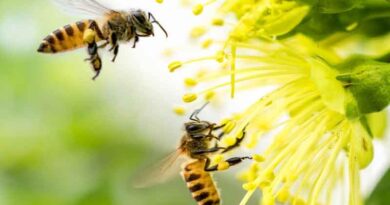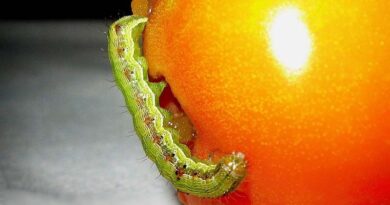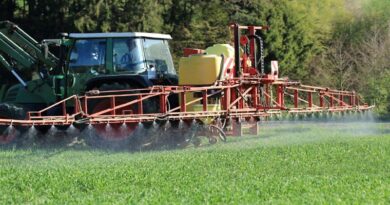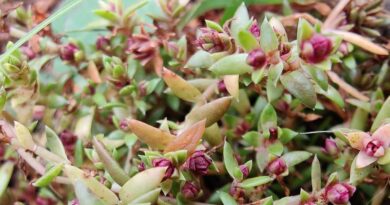California Court Paves the Way for Protection of Imperiled Bumble Bees and Other Insects
01 June 2022, California: Today, California’s Third District Court of Appeal ruled that the California Endangered Species Act (CESA) can protect invertebrates, including four species of imperiled native bumble bees that Center for Food Safety (CFS), Xerces Society for Invertebrate Conservation (Xerces), and Defenders of Wildlife (Defenders) petitioned the State of California to protect in 2018.
The Stanford Environmental Law Clinic represented the conservation groups in this appeal, which challenged a 2020 decision by the Sacramento County Superior Court that the California Fish and Game Commission (the Commission) lacked authority to list invertebrates under CESA, including the four bumble bee species at issue in this case. The Commission, along with the California Department of Fish and Wildlife (CDFW), also filed an appeal to challenge the trial court’s ruling.
“With one out of every three bites of food we eat coming from a crop pollinated by bees, this court decision is critical to protecting our food supply,” said Rebecca Spector, West Coast Director at Center for Food Safety. “The decision clarifies that insects such as bees qualify for protections under CESA, which are necessary to ensure that populations of endangered species can survive and thrive.”
This decision paves the way for critical protections needed for four imperiled bumble bee species that occur in California, as well as allowing the Commission to protect other imperiled insects under CESA. CESA provides protection for some of the most vulnerable plants and animals in California and provides a pathway to recover populations of these species so they will not go extinct.
“We are celebrating today’s decision that insects and other invertebrates are eligible for protection under CESA. The Court’s decision allows California to protect some of its most endangered pollinators, a step which will contribute to the resilience of the state’s native ecosystems and farms,” said Sarina Jepsen, Xerces Society’s Director of Endangered Species.
In 2018, CFS, Xerces, and Defenders petitioned the Commission to list the four species of native bumble bees as endangered under CESA. As a result of the groups’ petition, the Commission voted to begin the listing process in 2019, but was sued by a consortium of California’s large scale industrial agricultural interests shortly after its decision. The agricultural consortium argued that insects, such as the four bumble bee species, may not be listed for protection under CESA, and the trial court sided with the consortium of large industrial agricultural groups in November 2020, prompting the conservation groups, CDFW, and the Commission to launch an appeal in February 2021.
“It is a great day for California’s bumble bees. Today’s decision confirms that California Endangered Species Act protections apply to all of our state’s imperiled native species and is critical to protecting our state’s renown biodiversity,” said Pamela Flick, California Program Director with Defenders of Wildlife. “Bees and other pollinators are integral to healthy ecosystems and the crucial pollination services they provide serve all of us, making this decision exponentially more consequential.”
Bumble bees are essential pollinators, and the loss of bumble bees can have far ranging ecological consequences. Alarmingly, recent work by the Xerces Society in concert with International Union for Conservation of Nature (IUCN) Bumble Bee Specialist Group indicates that more than one quarter (28%) of all North American bumble bees are at risk of extinction. This decision not only allows protection for four highly imperiled species of bumble bee to move forward, it also clarifies California’s ability to protect other insects, like the monarch butterfly. Millions of monarch butterflies used to call California home but the California population has declined by 95% since the 1980s, threatening an end to one of nature’s most dazzling displays in the majestic coastal monarch groves.
Sam Joyce, a certified law student with the Stanford Environmental Law Clinic who argued the case in the Third District, said of the court’s decision: “CESA is one of the important tools we have to protect and restore endangered species. The court’s ruling, which is grounded in the California Legislature’s plain words and intent, ensures that CESA will fulfill its purpose of conserving ‘any endangered species’ by protecting the full range of California’s biodiversity, including terrestrial invertebrates.”
Protecting these species will help to maintain the healthy ecosystems that make California such a remarkable and productive state.
Over 80% of all terrestrial plant species require an animal pollinator (usually an insect) to reproduce. About one-third of food production depends on pollinators, and 75% of all fruits and vegetables produce higher yields when visited by pollinators. California accounts for more than 13% of the nation’s total agricultural value, and protecting these four bee pollinators is an important component of protecting California’s agricultural legacy. Across the U.S., native insects contribute an estimated $70 billion per year to the economy through their pollination services.
Also Read: UPL’s Winero and Bionse to help solve MRL related hurdles for grape farmers















